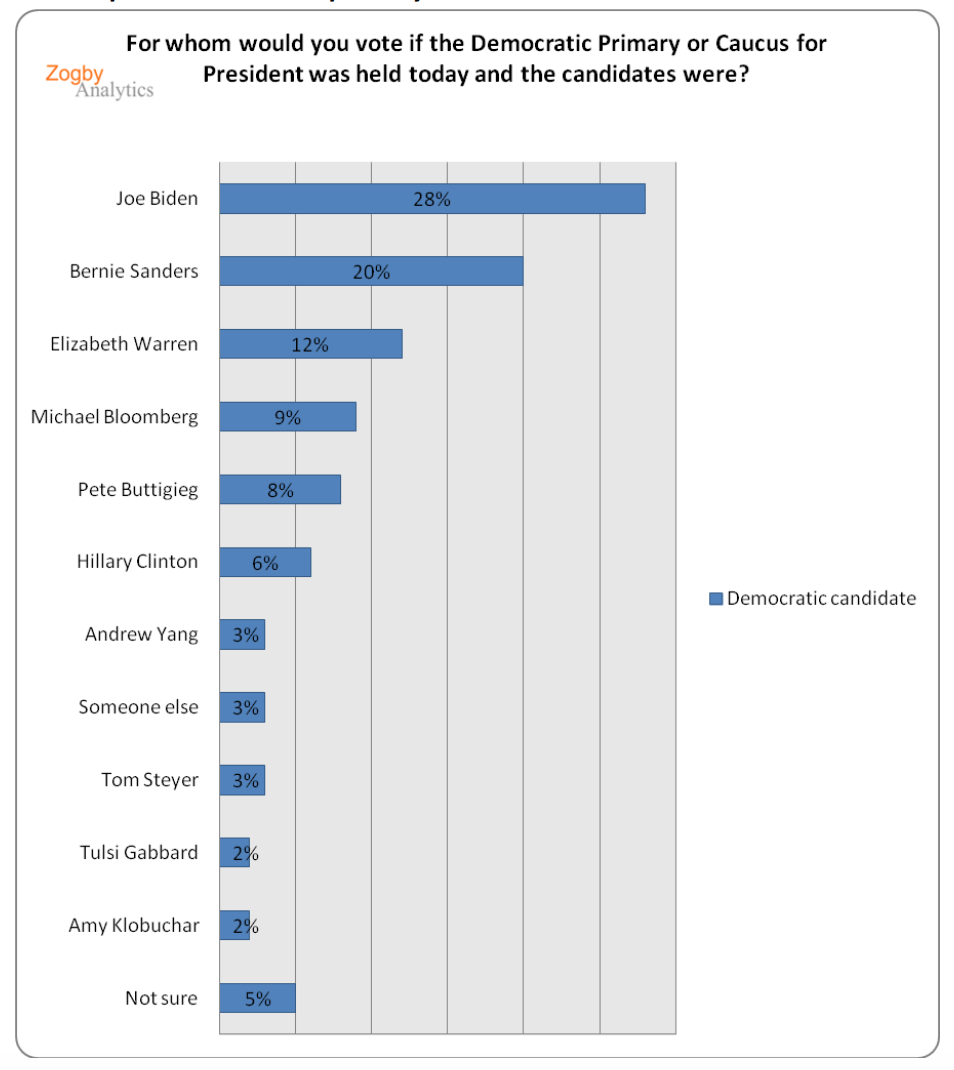Hillary Clinton’s long tease about entering the 2020 Democratic presidential primary, her third try at the brass ring, isn’t drawing much attention, according to a new poll that sticks her in sixth place.
Instead of winning cheers by her former team to shake up the moribund primary with a splashy entry, the latest Zogby Analytics survey provided to Secrets showed that she would hurt the leading woman in the race, Sen. Elizabeth Warren, and help the top two men, former Vice President Joe Biden and Sen. Bernie Sanders.
Pollster Jonathan Zogby’s new data shows Clinton at just 6%. “There has been some hype as to whether Hillary Clinton will enter the Democratic primary contest again. She hasn’t exactly ruled it out, but based on the numbers, it doesn’t look too realistic,” he said.
He added: “Hillary fails to impress Democratic primary voters.” At 6% support, she barely beats “not sure” at 5%.

Clinton has tried to stay in the public eye ever since President Trump’s 2016 Electoral College victory. She recently was interviewed by the shock jock Howard Stern, raising speculation she would follow former New York Mayor Michael Bloomberg into the race.
But Zogby’s voter survey suggests she’s losing ground to the rest of the field still led solidly by Biden and Sanders.
Warren is third in his new poll and could be hurt by Clinton’s entry, likely because they share voter bases.
“Clinton’s inclusion in the race does the most damage to Elizabeth Warren, who was beating Sanders among suburban and weekly Amazon shoppers voters and also running close with Sanders among women and Hispanics; Sanders pulls ahead of Warren among these groups with Clinton in the race. Hillary Clinton did do well with likely voters aged 50-64 (10%) but that’s about it when it came to areas where she received double-digit support,” Zogby said in his analysis.
She’d also help Biden.
“With Clinton in the race, the former vice president was also leading his rivals comfortably among key groups that will be important for the 2020 general election. These are suburban voters (35%), suburban women (25%), consumer blocs, such as, weekly Amazon shoppers (26%) and NASCAR fans (29%). He also did very well with African Americans (42%),” he said.
